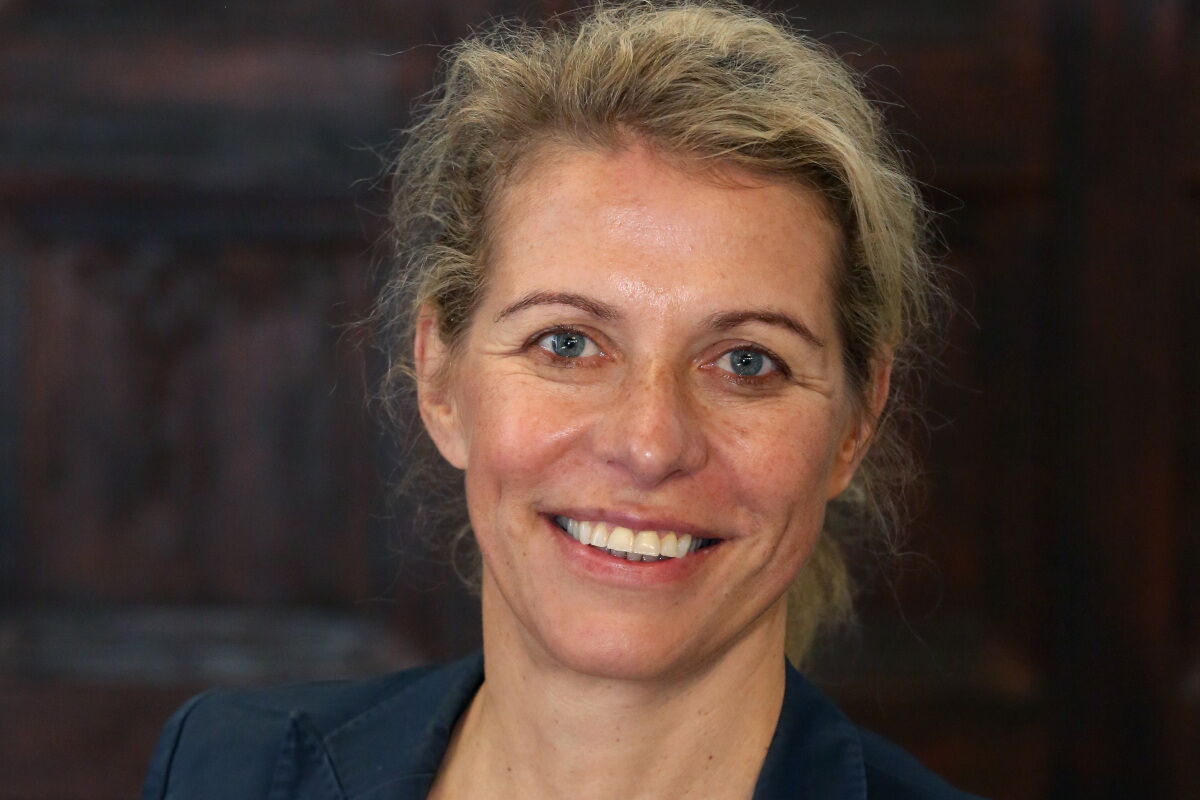Seed Money: “Little effort, lots of fun and lots of success!”

Once again, researchers and instructors from the five Eucor universities are eligible to apply for funding – an example from the “Teaching” category.
The Freiburg-based ancient historian Prof. Dr. Sitta von Reden heads up the educational project “Connecting – Editing – Programming – Learning (CEPL): sowing the seeds for joint teaching and research in digital papyrology, philology and ancient history in the European Campus.” Students from Freiburg, Strasbourg and Basel were introduced to reading, editing and digital publishing of Greek papyri from ancient Egypt in the form of digital teaching, which was still innovative at the time of the project. Eucor – The European Campus supported the project with seed money in the funding line “Teaching.” Sarah Nieber spoke with Ms. von Reden about her project.
Ms. von Reden, why did you set up this project on a cross-border basis?
Sitta von Reden: We have our own papyrus collection in Freiburg. No one knew where it actually was for a long time after it was removed during the University Library’s remodeling. When it was found well-packed in a side room of the nuclear bunker under KG II, it quickly became clear that this collection, albeit small, still had a lot of potential for research and teaching. There is an excellent research landscape for papyrology and the history of ancient Egypt here in the Upper Rhine region. So I quickly contacted my colleague at the Université de Strasbourg, Prof. Paul Heilporn. He is a specialist in papyrology and head of the Institute for Papyrology there. He looked at the Freiburg collection with great interest. It quickly became clear that we should initiate a cross-border teaching project with it. We wanted to integrate Basel’s expertise in the field of digitization of historical manuscripts and were very pleased to have Prof. Sabine Hübner from the University of Basel participate. Together we applied for seed money from Eucor – The European Campus.
How did you distribute the funding?
Through the funding we were able to hire a scientific coordinator, Dr. François Gerardin from Yale University. He developed the hybrid teaching format with many experts from all over the world. One-third of the semester involved classroom teaching (even before the pandemic) and project work while two-thirds took place as webinars. In this way, we were able to fill the different semester times at the Eucor universities with different teaching content in the most optimum way. The students wrote the papers relevant to the exams on site in each case. All participants edited one of the papyrological fragments scientifically and then submitted it to a journal for digital publication.
How will you continue after the Seed Money funding ends?
In retrospect, I can only evaluate the seminar as follows: little effort in the application process, a lot of fun at work and a lot of success! We would definitely like to repeat and further develop the project. From Freiburg’s point of view, we have gained solid knowledge about our papyrus collection, from which all introductory historical seminar students can now benefit in tutorials. And last but not least, we gained a lot of experience with digital teaching even before the pandemic. Especially in very small disciplines, collaboration across universities is an important perspective.
[vc_message]Teachers and researchers from member universities of Eucor – The European Campus can apply for Seed Money until September 30, 2021. The requirement is that at least two universities from two countries are involved in a project. The aim is to provide initial funding for new projects that further advance the development of Eucor – The European Campus and scientific networking. Corresponding applications can be submitted for the funding line “Teaching” as well as for the funding line “Research and Innovation”. A total of 300,000 euros is available. The maximum funding amount for a project is 60,000 euros, and the maximum duration is 24 months.
Seed Money funding application[/vc_message]